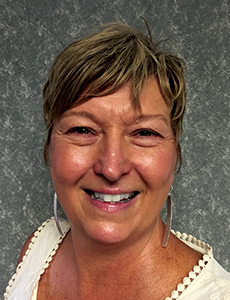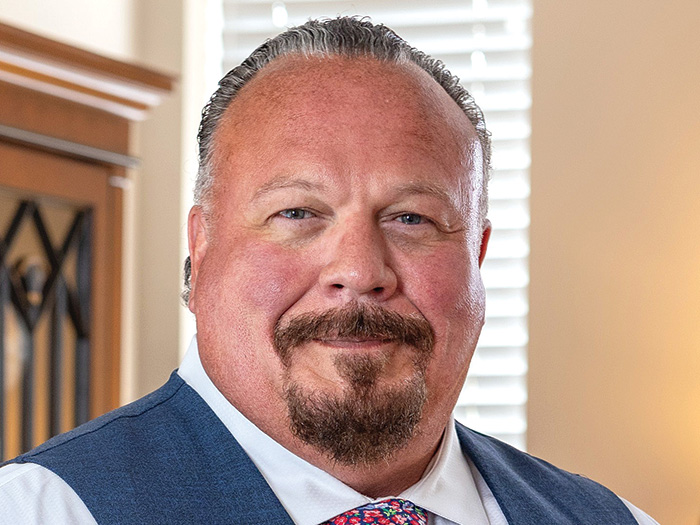Sponsored by K&K Insurance
4 Insurance Coverages Community Centers and Health Clubs Must Review to Keep on Top of Risk

Health clubs, community centers and similar activity and social clubs are pillars of the community, bringing people together for exercise, swimming, community sports, day camp and more.
These facilities are often brick-and-mortar buildings that host a number of indoor and some outdoor activities. YMCAs, Jewish Community Centers, Boys & Girls Clubs and the like are just a few examples.
“These facilities in the recreation and entertainment space are always looking to expand their offerings, too,” said Lita Mello, senior vice president of K&K Insurance’s Recreation Division. “There are always new activities, new offerings popping up that can create a new exposure for them.”
Some activities, Mello said, include ballparks with bounce houses, inflatable obstacle courses, axe throwing competitions, paintball courses and more.
“There’s the obvious risk — a slip and fall on the property grounds — but what these facilities have that other businesses do not is an athletic component,” Mello explained. “There are gyms with exercise equipment, basketball courts, yoga classes.”
In the event someone is injured while using equipment provided by the center, the center must be prepared to take on that liability. The same can be said for participants in obstacle courses or axe throwing competitions.
“That’s why it is important for community centers and health clubs to understand their exposures and procure proper coverage in advance.”
Here are just four coverages and why such facilities must be thinking about in order to maintain a safe and fun environment for its community.
1) Because community centers and health clubs often provide services to children, sexual abuse and molestation policies should be reviewed and put in place.

Lita Mello, Senior Vice President of K&K Insurance’s Recreation Division
Community centers and health clubs will often host events for children, from summer camp activities to youth soccer or baseball. Swimming lessons, too, are available in many centers and facilities.
For many of these activities, centers rely on the generosity of volunteers to help keep programs running in addition to on-staff personnel.
“Because centers have children entering these entities, and because centers have children interacting with adults across a number of offerings, they must have measures in place to protect these children,” said Mello.
In order to procure sexual abuse and molestation coverage, the appropriate processes and procedures must be in place at facilities servicing children in order to meet our underwriting process, said Mello.
Underwriters have set the standard, which includes running background checks on all staff members and volunteers dealing with children, requiring a rigorous application process, and training staff to recognize when a claim should be brought forward.
“The #MeToo movement really highlighted how prevalent sexual abuse and molestation can be,” Mello said. “It’s important that staff is trained to immediately say something if they believe sexual abuse has occurred.”
2) One unique offering these facilities have is the potential for an added restaurant or rented bar space.
Often when one thinks about a community center or a health club, the images of saunas, swimming pools, gyms and sports are clear offerings included. Restaurants and bar space, however, is a unique add that health clubs have been known to include.
“Liquor liability goes hand in hand with a restaurant or a bar,” said Mello.
“When you are selling alcoholic beverages, you do need to have liquor liability and usually are required to do so when you have a liquor license.”
Liquor liability protects the health club or center in the event a guest leaves and suffers a car accident or harms another pedestrian.
There is coverage embedded in a general liability policy for Host Liquor, said Mello, but this coverage only pertains to when the center or club is gratuitously providing liquor.
“That’s why, if a recreation facility wishes to host an event or add in a more permanent structure like a restaurant, we encourage them to review what’s covered under the general liability versas liquor liability,” she said.
3) No matter the circumstance, event cancellations can happen at anytime. Knowing what’s covered can go a long way in alleviating strife.
There are a number of reasons a facility might find themselves cancelling an event unexpectedly. Natural disasters, power failure, strikes or similar causes are just a few examples. This year in particular, however, has been significantly impacted by the spread of the novel coronavirus and its consequential shutdowns.
“I don’t think there’s anything that hasn’t been affected by COVID,” said Mello.
For her, she witnessed firsthand what community centers and health clubs had to do in order to remain compliant with state regulations. For some, that meant shutting down entirely. For others, that meant limiting access and adapting to social distancing guidelines.
And events, unfortunately, did have to be cancelled.
“This coverage helps cover the losses sustained from unexpected cancellation,” said Mello. “Some, but not all event cancellation coverages will cover disease outbreak under the policy, so it’s important to review what’s in your policy specifically.”
Health clubs and community centers should be partnering with an insurer that offers specifically to protect event organizers, promoters or sponsors against cancellation, abandonment, postponement, interruption, curtailment or relocation of insured events.
4) General liability is an absolute must.
General liability may seem like an obvious coverage to review, but as Mello put it, “It is the main coverage to have.”
Because of the athletic component these facilities have, and the subsequent possibility of injury to a guest, centers and health clubs must review their GL policies in order to know they have enough protection in the event there is an incident.
Community centers in particular must review the optional coverage options available to them, because many such facilities are nonprofits.
“In a community center’s case, they’re typically not-for-profits,” Mello explained. “That means they might not have a large budget to begin with. The money coming in is likely from donations or fundraisers, so making sure they can protect their assets is a big deal.”
Of course, she added, for-profits should also review GL policies to maintain coverage and reduce their exposures.
Finding a Partner That Understands a Center’s Unique Offerings and Insurance Needs
What these recreational facilities provide is a sense of community as well as a place to offer unique programs for children, teens and adults alike.
But because of the services and activities that health clubs and community centers offer, they have unique risks and challenges for which they must prepare.
“Facilities differ from state to state, from town to town,” said Mello. “Each provides a different set of offerings for its community, and in order to remain protected, each needs to partner with an insurer that understands their needs.”
At K&K Insurance, knowing the exposures and understanding the risks at recreation facilities is the number one priority.
K&K has developed a wide range of expertise in different programs from full-service health clubs that offer several amenities and services down to small exercise studios.
“K&K and its underwriting and claims teams understand a health club isn’t just a health club; it can have a wide variety of risks,” said Mello.
“We specialize in sports, leisure, recreation and many similar areas. We know what it takes to cover a sports tournament or a treetop obstacle course with ziplines. A standard market may not understand the depth and the breadth of the risks involved with these activities, but K&K has made it our mission to understand the coverages those organizations need.”
To learn more, visit: https://www.kandkinsurance.com/.
This article was produced by the R&I Brand Studio, a unit of the advertising department of Risk & Insurance, in collaboration with K&K Insurance. The editorial staff of Risk & Insurance had no role in its preparation.










